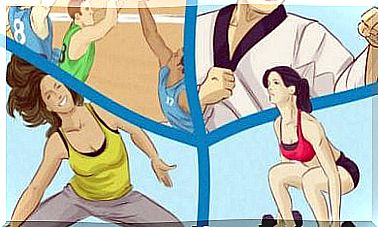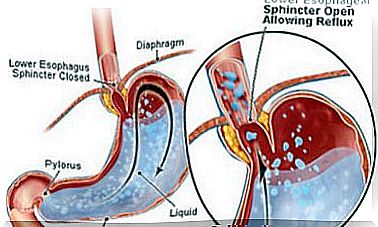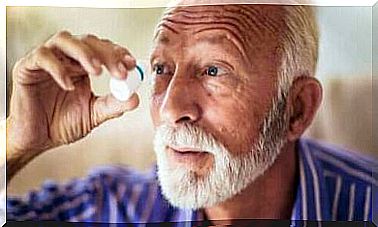How To Live More Consciously

Nowadays, with so many media and sources of distraction inviting us to focus on others and not ourselves, it is becoming more and more difficult to live more consciously. It seems that our inner self is becoming less and less attractive.
What does it mean to live more consciously?
To live consciously is to know who you are, your place in the world, and your place as far as the people around you are concerned. It is about remembering one’s responsibilities, qualities, virtues and also acknowledging one’s negative sides.
This brings us back to the concept of dasein , by the German philosopher, Martin Heidegger. Dasein is man’s “existence”, to be dynamic in life, experience and live. In short, it is the relationship to its own existence.
When we simultaneously remember the great Spanish thinker, José Ortega y Gasset, conscious lifestyle has to do with us and our circumstances and what we do with the world we live in.
What keeps us from living consciously in the present?
In addition to everyday distractions, too much work and other activities, certain attitudes affect us and are signs that we are not living consciously in the present.
Some of these are as follows:
- Anger: Anger is a negative feeling around bitter memories, due to a violation or injury that we believe we have received undeservedly. It is about feelings of anger and sadness.
- Anxiety and fear: We are afraid of dangers, of dying, getting sick, or that something will happen to our children. When we succumb to fear, we stop living life to the fullest. Both anxiety and fear create feelings of sadness, insecurity and fearful suspicions about the future.
- Excessive self-confidence : A certain amount of self-confidence is positive, too much becomes something bad. An exaggerated ego prevents us from connecting with the world and other people.
- Avoidance: Being aware of what we are means accepting our reality. Living in the past, in seemingly more pleasant times, or imagining an idyllic future, can give us temporary relief, but it is not a solution.
- Distraction: It is only possible to live fully if you are aware of yourself, your circumstances and the present.
- Boredom: If you are bored with what you are doing and what is in front of you, it is because you wish you had done something else right now. But if you’re always bored, it’s a bad sign.

Good advice for living more consciously
Although we assume that it is necessary to live mindfully in the present, not all of us know how to become better at focusing on the here and now. We need to train the mind to experience all experiences. We must relearn what we have learned.
1. Meditation
Meditation is the beginning of living consciously. When we meditate, we do nothing but be present and live here in the now.
There is evidence that meditation has beneficial biopsychosocial effects in various areas of human life, both in terms of emotional states and in cognitive processes and general health. It even affects symptoms of chronic diseases.
Thus, making meditation a habit helps us to live more consciously and stop thinking with fear of what is going to happen or with anger at what has already happened.
2. Yoga and exercise
Yoga is not just a series of stretching exercises that strengthen the body. First of all, it benefits the connection between body and mind.
In fact, several studies show that physical activity and yoga are stress-reducing and promote a better quality of life in terms of physical, emotional, intellectual, social and spiritual aspects.
Give up expecting and judging
When we have expectations, it leads to us being unable to accept. Similarly, this belief that things must be different exhausts us and prevents us from seeing what is around us.
Of course, we can change for the better and try to improve ourselves. Acceptance does not mean that one has to agree with or settle for everything as it is. Rather, it means removing the denial and the inner struggle against the world.
At the same time, the judgments we make about ourselves, or the fear of others’ judgments, take us away from our reality and create a distorted idea of what we expect or what others expect of us.
4. Avoid negative emotions
To have confidence in the present is to live consciously. But having confidence in the present means letting go of anxiety, anguish and fear.
The same goes for anger, rage and bitterness. It keeps us in negative times and keeps us from seeing that there is more.
5. Practice acceptance and gratitude
It may be that our lives do not look perfect, but no one has said it should. There are times or situations that we find unpleasant.
And yet, for every thing we do not like, there is another who compensates for this. If we pay attention to the first rather than the last, it is because we focus too much on the negative.
It is impossible to live one happy moment after another. But we also cannot live in constant sadness. The French author, Albert Camus, once said that no one can be either permanently happy or permanently unhappy.
At the same time, when we are grateful, we see what we forget and what we lack. This is the very essence of living.

6. Mindfulness
Mindfulness is about being aware of the reality of the present, fully aware of what you are doing, without thinking about or wanting anything else. Living consciously and mindfully is inextricably linked and is two sides of the same coin.
Many studies show that mindfulness is effective in treating stress and other mental health problems, to the point where it is already part of many psychotherapeutic programs.
Developing mindfulness is something we can achieve through practice, avoiding all that distracts our minds from what we are doing and striving to maintain concentration on a single task.
Numerous activities can help us learn this difficult but necessary art of mindfulness and the conscious life. Among these are the following:
- Listen to quiet music.
- Read.
- Draw or paint.
- Play chess.
- Go for walks in nature.
The benefits of living more consciously in the present
If we do not allow ourselves to experience the life we live, we will not gain the knowledge that every experience contains. We will learn nothing and be doomed to make the same mistakes.
If we walk consciously through life, we are more open to learning from our surroundings and ourselves. We will be able to handle stress and pain better.
It is possible to live consciously in the now. Our future existence will depend on it: far more than on the other things that we cannot control.
We can free ourselves from unnecessary suffering. All we need to do is get out of the shell in which we have sought refuge, turn down the outer noise, open our eyes to that which is within us, and truly dare to live.









